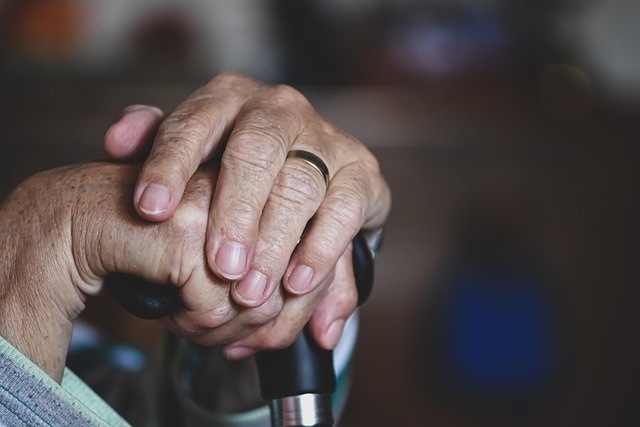In Houston, addressing the unique needs of elderly sexual offenders requires a tailored, nuanced approach. Rehabilitation programs should include cognitive behavioral therapy, life skills training adapted to their abilities, and address underlying causes like dementia or depression. Effective care involves collaboration between elderly sexual assault lawyers Houston, healthcare providers, and social workers. Specialized legal support aims to protect rights, ensure justice, and reduce recidivism while fostering reintegration into the community. Measuring success involves recidivism rates and qualitative assessments of participants' well-being and attitudes, with key metrics indicating program effectiveness.
In Houston, addressing the rehabilitation of elderly sexual offenders is a pressing issue. This article delves into the unique challenges faced by this demographic within the city’s criminal justice system. We explore the current state of rehabilitation programs and highlight effective strategies for reintegration.
Key topics include legal considerations for elderly sexual assault cases, with a focus on support services available in Houston, and measuring success through program impact evaluation. Understanding these aspects is crucial for improving outcomes and fostering healing for both offenders and their communities. Elderly sexual assault lawyers in Houston play a vital role in navigating these complex issues.
Understanding the Unique Needs of Elderly Sexual Offenders in Houston

In Houston, addressing the needs of elderly sexual offenders requires a nuanced approach, given their unique circumstances and challenges distinct from younger populations. Many elderly sexual assault lawyers Houston note that this demographic often faces complex issues such as cognitive decline, physical limitations, and social isolation, which can impact their understanding of right and wrong, decision-making abilities, and participation in rehabilitation programs. These factors necessitate tailored interventions that consider their diminished capacity for self-control and potential vulnerability to exploitation.
Rehabilitation programs must be designed to cater to the specific needs and capabilities of elderly sexual offenders. This might involve modifying existing programs or creating specialized services that focus on cognitive behavioral therapy, life skills training adapted to their physical abilities, and addressing underlying causes such as dementia or depression. Effective rehabilitation for this vulnerable population in Houston requires a collaboration between legal professionals, healthcare providers, and social workers to ensure comprehensive care tailored to their unique challenges.
The Current State of Rehabilitation Programs in Houston's Criminal Justice System

In Houston, Texas, rehabilitation programs aimed at elderly sexual offenders are a critical component of the city’s criminal justice system. However, the current state of these programs leaves much to be desired, particularly when it comes to addressing the unique needs of this demographic. Many existing programs lack specialized services tailored for older adults, such as age-appropriate counseling, healthcare integration, and cognitive assessments. As a result, elderly sexual assault lawyers in Houston often encounter cases where offenders slip through the cracks, reoffending due to inadequate rehabilitation.
The absence of targeted interventions is especially concerning given the sensitive nature of elderly sexual offenses. Offenders, often dealing with age-related cognitive changes, may not fully grasp the severity of their actions or comply with treatment plans. Houston’s criminal justice system needs a more comprehensive approach that recognizes the challenges faced by elderly sexual offenders and provides appropriate resources to ensure successful rehabilitation. Elderly sexual assault lawyers in Houston play a vital role in advocating for such reforms, pushing for better-structured programs that consider both public safety and the unique circumstances of these individuals.
Effective Strategies for Rehabilitation and Reintegration of Elderly Offenders

Effective rehabilitation and reintegration strategies are crucial for the successful transition of elderly sexual offenders back into society, especially in a city like Houston where access to specialized legal support through elderly sexual assault lawyers can play a pivotal role. One of the key approaches involves individual therapy sessions tailored to address the unique needs and challenges faced by this demographic. Given the sensitive nature of their offenses, these programs must offer a safe and non-judgmental environment for open dialogue, fostering trust between therapists and participants.
Group therapy sessions can also be beneficial, providing a sense of community and shared understanding among peers with similar experiences. This not only encourages accountability but also offers valuable peer support networks that can aid in their long-term recovery. Additionally, educational workshops focused on sexual ethics, consent, and healthy relationships can help break the cycle of offending by imparting new perspectives and behaviors. Such programs, when designed and executed by experts, have the potential to transform lives, reduce recidivism rates, and facilitate successful reintegration into Houston’s community.
Legal Considerations and Support for Elderly Sexual Assault Cases in Houston

In Houston, the legal landscape for addressing elderly sexual assault cases is complex and requires specialized knowledge. Elderly sexual assault lawyers in Houston play a pivotal role in navigating the intricate legal system, ensuring that victims receive justice and appropriate support. These attorneys are adept at handling sensitive cases involving older adults, understanding the unique challenges and considerations that arise. They advocate for their clients’ rights while adhering to specific laws and regulations related to elderly care and protection.
The city’s legal framework provides certain protections for vulnerable populations, including elderly residents. Houston’s elderly sexual assault lawyers are well-versed in these laws, which can include provisions regarding consent, privacy, and specialized support services. They work closely with law enforcement, medical professionals, and social services to ensure comprehensive care for victims. This collaborative approach is crucial in handling such cases effectively and ensuring that the needs of both survivors and perpetrators are addressed within legal parameters.
Measuring Success: Evaluating the Impact and Outcomes of Rehabilitation Programs

Measuring success in rehabilitation programs for elderly sexual offenders is a multifaceted process that goes beyond simple numbers. It involves evaluating the impact on both individual lives and broader community safety. One key metric is recidivism rate, which tracks how many participants reoffend after completing the program. A significant reduction in this rate indicates effective interventions.
Additionally, qualitative assessments through interviews or surveys can offer valuable insights into the program’s outcomes. These methods explore individuals’ attitudes, behaviors, and perceptions of themselves and others, providing a deeper understanding of their transformation. For Houston residents with elderly sexual assault lawyers, these evaluations are crucial in ensuring that rehabilitation programs effectively address past offenses while fostering positive change and preventing future incidents.





